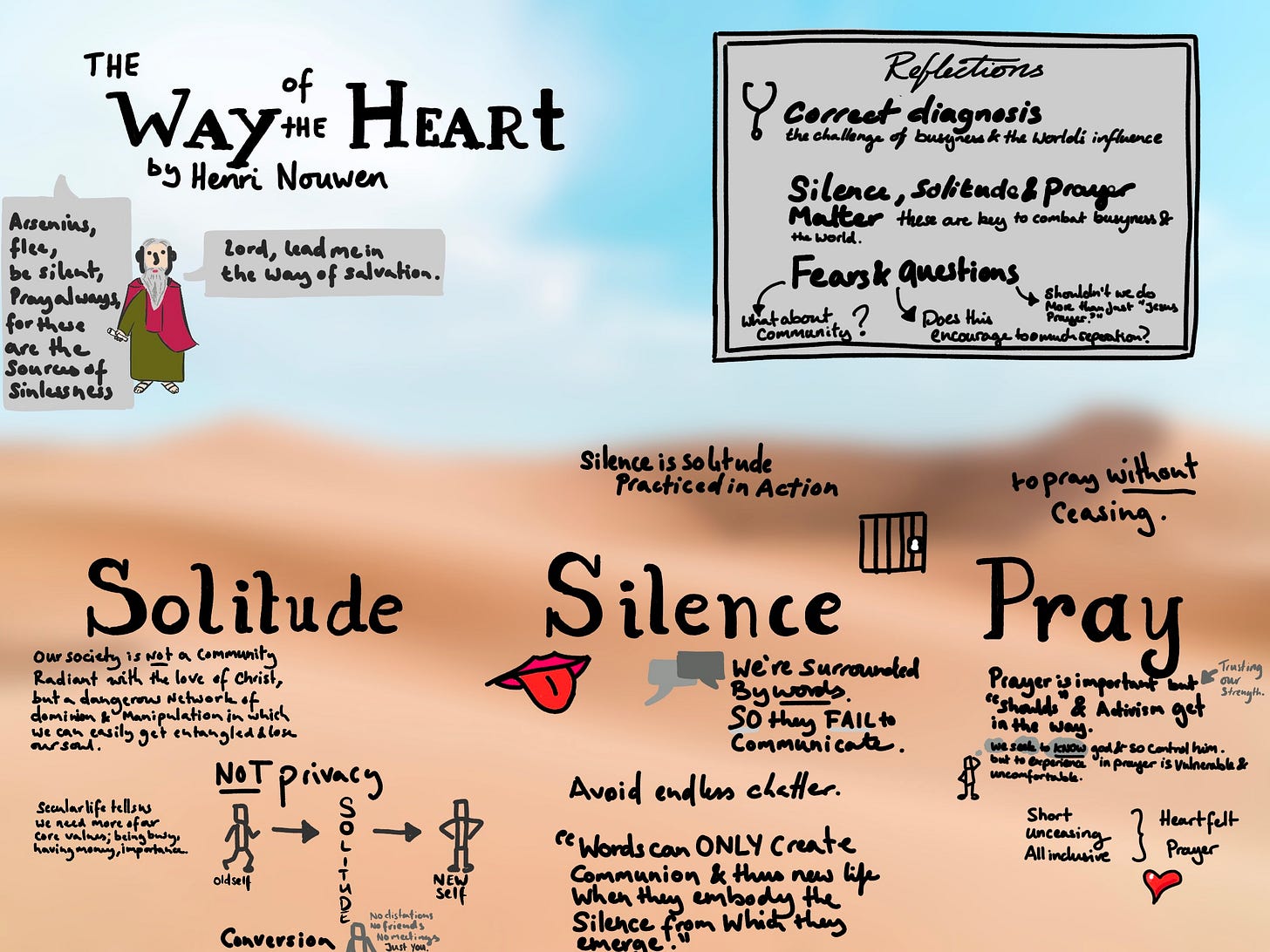Last year, I read Henri Nouwen’s classic on Spiritual formation with a group of friends.
We all shared our thoughts and feedback so I made a sketchnote with my reflections. I kept it private for a while, but then I realised that it might be good to share it after seeing a friend mention the book again.
Here are some quick thoughts and takeaways.
Drawing on the desert fathers
Henri looks at St Arsenius, who felt the call to leave the corruption of Roman society and go into the desert.
He was seeking “the way of salvation” and God spoke to him with three instructions for the path of sinlessness. His call centred on three aspects that Henri expands upon.
Solitude,
Silence
And prayer
These three practices overlap a lot but are also distinct.
Solitude
The first call Arsenius felt was to flee.
The society at the time was sinful and not one that embodied the values of Christ — something I’m sure all of us feel to some degree. Solitude is the alternative; spending time without the world. Henri draws a contrast with privacy where we’re still focused on ourselves and our goals, but solitude is away from those worldly goals.
Silence
I love how Henri calls Silence “solitude practised in action”.
Since Henri died, our world has become even more noisy. His solution is to avoid any words so our words can truly matter.
Henri advises us to start with silence, rather than praying with words to God.
Prayer
Only once we have withdrawn and engaged in silence are we ready to pray.
Henri describes the problem of most prayers as being these long forceful things trying to strong arm God into doing what we want. Instead, he promotes short, heartfelt prayers often. That is the kind of unceasing prayer the Bible asks for.
The Good, the bad and the questions
As a protestant, a catholic theologian describing a desert father did cause me some discomfort.
After all, is that really the path of salvation? What about Jesus? For a protestant like me, we’d have the neat boundaries of sanctification and justification, but just because we drew those distinctions clearly in the 1600s doesn’t mean earlier Christians had them or needed them.
It also left me wondering where the place for community is in this and how we should engage with the broader world.
I don’t believe that is a major problem. This book is focused on those three spiritual disciplines, and when we look at Jesus who withdrew to the wilderness to be with God, he then came back to the world to engage it.
That’s why it is so important to practice these points.
Worth reading
This is a short book but very practical and inspiring.
I believe it is a great book for contemporary Christians to read and be challenged in some of their practices and beliefs.




